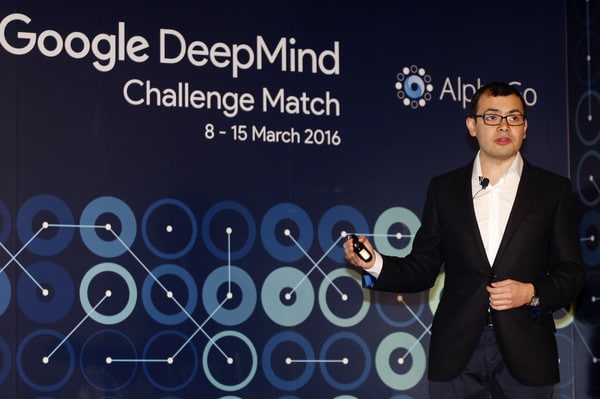Stepping beyond human knowledge: one giant leap for machines

Old Elizabethan Demis Hassabis’s company, DeepMind, has made another major advance in artificial intelligence: its supercomputer program has taught itself to become the world’s best Go player, without any guidance from human beings.
DeepMind’s original AI program, AlphaGo, achieved prominence last year when it beat Lee Sedol, world champion at Go, the ancient and complex strategy game. To achieve the feat, the team at Google-owned DeepMind had programmed AlphaGo with millions of moves by past players. It took months for the machine to get to the point where it could take on a professional player.
However, the latest version, AlphaGo Zero, was taught the rules of Go, but given no extra instructions or examples. Instead, it learned to master Go simply by playing millions of games against itself. Within three days, it was good enough to beat the original program by 100 games to nil, and it has gone on to discover game-playing strategies and principles, some of which were genuinely novel.
Demis (OE 1988–1990) co-founded DeepMind in 2010. He sold it to Google for a reported £400m in 2014, but remains its chief executive.
He told journalists this week: “We’re quite excited because we think this is now good enough to make some real progress…even though we’re obviously a long way from full AI. Ultimately, we want to harness algorithmic breakthroughs like this to help solve all sorts of pressing real-world problems,” said Hassabis.
“If similar techniques can be applied to other structured problems, such as protein-folding, reducing energy consumption or searching for revolutionary new materials, the resulting breakthroughs have the potential to drive forward human understanding and positively impact all of our lives.”
DeepMind has already begun using AlphaGo Zero to study protein-folding and has promised it will soon publish new findings. Misfolded proteins are responsible for diseases including Alzheimer’s, Parkinson’s and cystic fibrosis.
Demis’s colleague, David Silver, has overseen the team working on AlphaGo. “The new version starts from a neural network that knows nothing at all about the game of Go,” he said.
“The only knowledge it has is the rules of the game. Apart from that, it figures everything out just by playing games against itself. It shows it’s the novel algorithms that count, not the compute power or the data,” said Mr Silver, who pointed out that in just a few days a machine had surpassed the knowledge of this game acquired by humanity over thousands of years.
“We’ve actually removed the constraints of human knowledge and it’s able, therefore, to create knowledge itself from first principles, from a blank slate,” he added.
